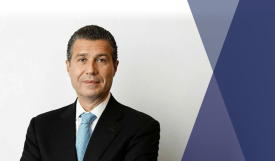North Korean Human Rights Abuses Detailed in New U.N. Report, "Strikingly Similar" to Nazi Germany Says One Commissioner
United Nations Commission of Inquiry on Human Rights has just completed an 11-month inquiry into alleged violations of human rights in North Korea, an issue which is not new knowledge to the international community but one in which finally the international community might take action and do something about the human rights abuses. The commission is made up of three appointed officials, chaired by Michael Kirby, a former Australian High Court judge, in addition to Sonja Biserko of Serbia and Marzuki Darusman of Indonesia.
A new report documented the extent of the crimes regarding "the right to food, prison camps, torture and inhuman treatment, arbitrary detention, discrimination, freedom of expression, the right to life, freedom of movement, and enforced disappearances, including abductions of other citizens," according to CNN. The commission concluded that North Korea has committed crimes against humanity "that does not have any parallel in the contemporary world."
The United Nations Commission of Inquiry on Human Rights was established last year by the U.N.'s Human Rights Council and since then it has examined satellite imagery, evidence, and testimonies from more than 100 victims, witnesses and experts regarding North Korea. Some of the testimonies were held in confidentially due to the sensitive nature of the issue and out of protection concerns for family still remaining in North Korea, although Pyongyang has refused to cooperate with the investigation and rejected the commission's validity. North Korea is not party to any international community organizations and when the commission of inquiry requested access to North Korea to examine the evidence North Korea rejected the commission and has not answered subsequent letters.
The panel of U.N. investigators said that North Korean security chiefs, officials and Supreme Leader Kim Jong-un should face international justice for ordering systematic torture, starvation and killings comparable to Nazi-era atrocities. "At the end of the Second World War so many people said 'if only we had known ... if only we had known the wrongs that were done in the countries of the hostile forces'," said lead investigator Michael Kirby. "Well, now the international community does know ... There will be no excusing of failure of action because we didn't know. Too many times in this building there are reports and no action. Well this is a time for action."
Most of the findings resulted from a year-long investigation which saw public testimonies by defectors, including former prison camp guards, at hearings across the world in South Korea, Japan, Britain and the United States. One of the most well-known defectors was Shin Dong-hyuk, who wrote a book called Escape from Camp 14 detailing his life and how he escaped from a prison camp and is now living in South Korea and is a leading activist for ending North Korean human rights abuses. He has shown satellite maps of where the North Korean gulags are located and where the fences run so much is known about the geography of the prison camps.
One North Korean prison camp survivor told of a starving pregnant woman who gave birth to a baby but was beaten when a security agent heard the baby's cries, then the prison guards forced the mother to pick up her newborn and put the baby's face down in water until the cries stopped and a water bubble formed from the newborn's mouth.
"Because we saw so many people die, we became so used to it," one prison camp survivor testified to the commission. "I'm sorry to say that we became so used to it that we didn't feel anything. In North Korea, sometimes people on the verge of dying would ask for something to eat. Or when somebody died we would strip them naked and we would wear the clothes. Those alive have to go on, those dead, I'm sorry, but they're dead."
One former prisoner and trafficked sex worker revealed how women were used for sex with rape, abuse and forced terminations. "They would force abortion after the pregnancy test. Pregnant women get sent to labor camps to carry loads up and down the hills which cause miscarriages."
The chairman of the independent Commission of Inquiry said that the crimes his team had catalogued were eerily reminiscent of those committed by the Nazis during World War Two. "Some of them are strikingly similar," he said. "Testimony was given ... in relation to the political prison camps of large numbers of people who were malnourished, who were effectively starved to death and then had to be disposed of in pots, burned and then buried ... It was the duty of other prisoners in the camps to dispose of them." Kirby said the report was specifically addressed and targeted at the North Korean head of state Kim Jong Un as a strategy to get him to change: "A great deal of responsibility must lie on such a person. If you are at the center, then you have power to change things."
He believes that for the first time, some form of international action may finally take place due to the extensive and graphic nature of the new report. "I do expect that the report will galvanize action on the part of the international community," he said. Hundreds of North Korean officials could be guilty of crimes against humanity including murder, torture, rape, abductions, enslavement, starvation and executions, and could be tried by an international court. "We've collected all the testimony and can't just stop and wait 10 years. The idea is to sustain work."
The investigators told Kim Jong-Un that they would be advising the United Nations to refer North Korea to the International Criminal Court, to make sure any and all culprits were held accountable. The U.N. investigators also informed China that in light of the recent investigation their country would be aiding and abetting crimes against humanity by sending migrants and defectors back to North Korea, as North Korean migrants and defectors who are eventually returned by China regularly face torture, detention, summary execution and forced abortion.
The political response to the report and the way forward is tricky because China is both a member of the U.N. Security Council and an overt ally of North Korea, meaning it could block UN action seeking human rights redress against the North Korean dictatorship. This would also mean use of the International Criminal court could be jeopardized by China's veto, meaning any referral to the Hague-based international court would not take place. Some UN sources have considered setting up a special tribunal to deal with the North Korea question that would avoid such delays and political roadblocks. John Kerry was recently in China pressing the country on its cooperation with North Korea. It remains to be seen if China's position on the dictatorship will change as it grows to become more of the international community in political and economic ties.
North Korea's diplomatic mission in Geneva states: "We will continue to strongly respond to the end to any attempt of regime-change and pressure under the pretext of 'human rights protection.'" The North Korean statement also claimed that the report was an "instrument of a political plot aimed at sabotaging the socialist system" and thereby defaming the country. It stated outright that rights violations listed in the document "do not exist in our country."
Subscribe to Latin Post!
Sign up for our free newsletter for the Latest coverage!
© 2026 Latin Post. All rights reserved. Do not reproduce without permission.














